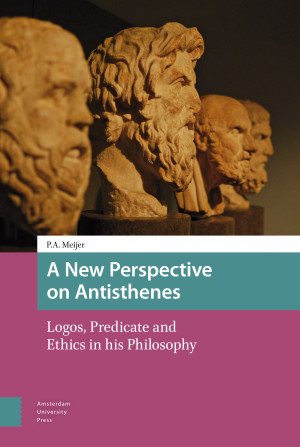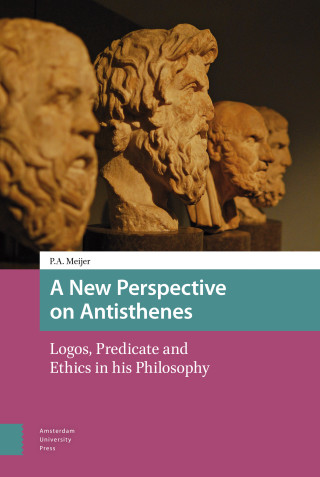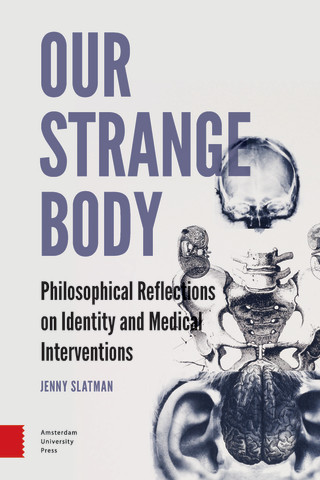Preface
Abbreviations
Primary Sources-Editions Used
Introduction
1) Antisthenes' status
2) The importance of Antisthenes' philosophical views
Part I Logos and Predicate
Chapter I Contradiction
1) Did Antisthenes claim that there is no such thing as contradiction?
2) Was Antisthenes the first theoretician of the predicate?
3) Aristotle contra Antisthenes
4) A 'mad' contradictor
5) Antisthenes and ouden legein
6) Aristotle's unconvincing rejoinder
7) The silver-tin analogy
8) The Antistheneans
9) Was makros logos an unusual notion?
10) The enumerative definition
1) Was the enumerative definition a trouvaille of the Antistheneans?
2) Does 'one cannot say what a thing is' conflict with Antisthenes' own view?
11) Antisthenes' followers and teaching
12) Aristotle's to ti en einai and the 'was' of Antisthenes' explanation of logos
13) The imperfect tense in the logos-formula, why not also a future tense?
Chapter II Investigation of names
1) Name (onoma)
2) An example of the investigation of a name (polytropos)
3) The logos formula reconsidered
4) Branccaci's solution to the imperfect ?n
5) An interim assessment: Antisthenes contra Plato?
6) Reconsideration of the issue about contradiction (Plato's Euthydemus)
7) 'To speak falsely' (ceÁdesyai)
8) 'Nearly' (sxedÓn)
9) Antisthenes' teaching practice
10) Appendix I: Guthrie's systematic survey
Part II Antisthenes' views on Theology: His theoretical approach to the study of Homer
Chapter I Theology
1) Antisthenes and monotheism: was Antisthenes the first monotheist?
2) Aphrodite's case
3) Pleasure as background to theological issues
4) Antisthenes and the popular gods
Chapter II Antisthenes' scientific approach to the study of Homer
1) Polytropos
1) Section 1
2) Section 2 (lysis)
3) Section 3
2) Commentary on the sections
1) Strange Section 3
2) Antisthenes' logical style
3) Argumentation in Section 2
4) Section 3 revisited
3) Aristotle corrected
Chapter III Antisthenes' interpretation of other Homeric Figures
1) A critical observation: Antisthenes in favour of Homer and the Cyclopes
2) Calypso
3) Other places in Homer: On wine
Part III Antisthenean Ethics
Chapter I Ethics and Myth
1) Introduction: Moral strength
2) Heracles: Ethics and paideia
3) Heracles and Heavenly Matters
4) Heracles and Money
5) Heracles and Virtue
6) Properties of virtue, wisdom (phronesis)
Chapter II Sex, Marriage, Family
1) Antisthenes' teaching regarding sex and marriage
2) Adultery
3) Family
Chapter III Aspasia
1) Introduction
2) Aspasia and Pericles
3) Aspasia and Menexenus
Chapter IV Alcibiades
1) Alcibiades and beauty
2) Alcibiades' bad behaviour
Chapter V Antisthenes and Politics
1) Introduction
2) Archelaus, the bad king?
3) Whence Antisthenes' preference for Cyrus as the good king?
4) Antisthenes' Cyrus-works, Xenophon's Cyropaedia
5) Good and Bad in the State
6) Social theory
Chapter VI The Wise
1) The wise person
2) The wise as models
Chapter VII Antisthenes and Xenophon
1) Introduction
2) Jealousy and envy
2) Friendship
3) Friendship and 'orthosemantics'
Chapter VIII A portrait of Antisthenes in Xenophon's Symposium
1) Antisthenes in Xenophon's Symposium
2) The teachability of virtue
3) Antisthenes as a cross-examiner
4) Antisthenes and Niceratus on Homer
5) Antisthenes' speech
6) Pandering
7) Two incidental appearances
8) The final scene between Socrates and Antisthenes
9) Antisthenean themes in Xenophon's Symposium
Epilogue: Antisthenes, an Assessment
Appendix II The Speeches of Ajax and Odysseus
Introduction
Antisthenes' sources
The aim of the speeches
Aiax' speech: 'Not words but deeds'
Odysseus' Speech: 'I alone am the saviour of the Greeks by secret acts'
Antisthenes' book On Courage
Bibliography
Concordance Giannantoni (SSR) -Caizzi D.C.
Index of Fragments Cited
Index of Passage Cited
Index of Names





